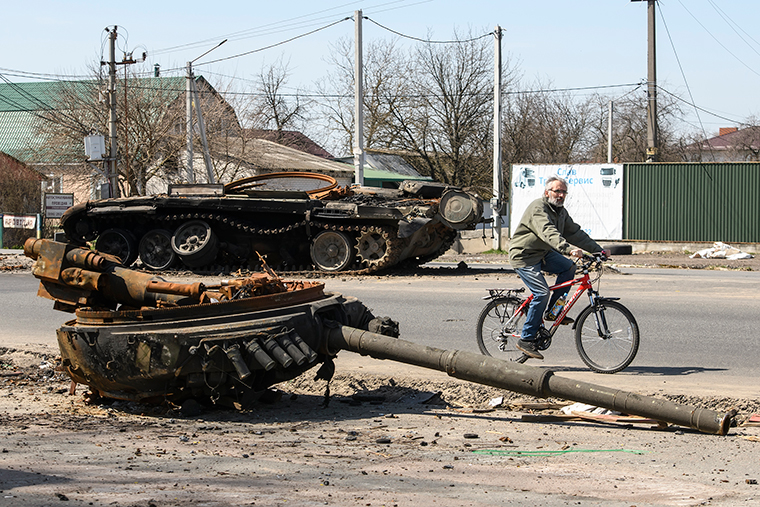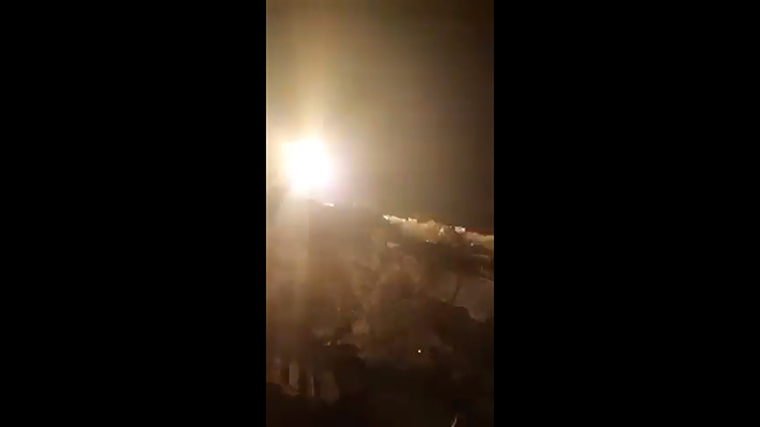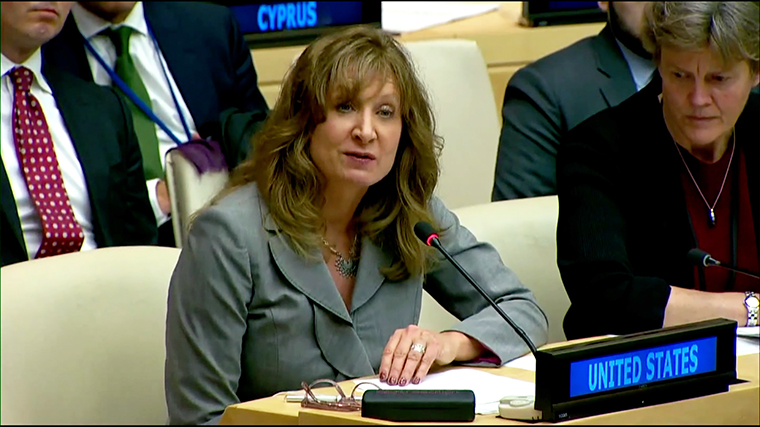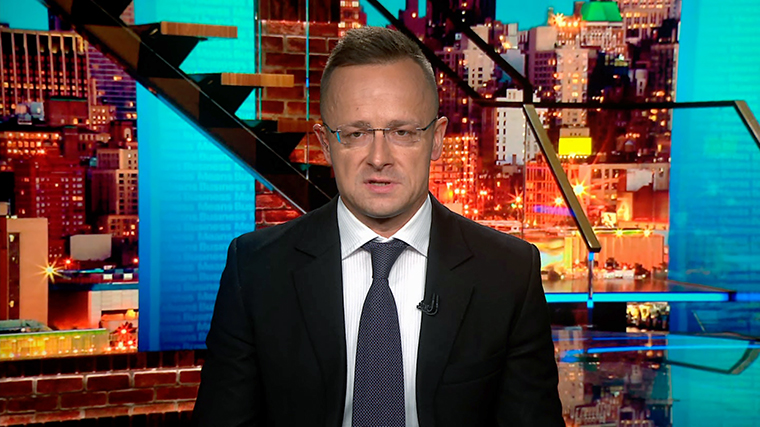Our live coverage of the war in Ukraine has moved here.
April 27, 2022 Russia-Ukraine news
By Aditi Sangal, Maureen Chowdhury, Jessie Yeung, Seán Federico O'Murchú, Ben Morse, Jeevan Ravindran and Ed Upright, CNN
Kherson region of Ukraine will transition to ruble from May 1: Russian state media
From CNN's Masha Angelova
The Russian-occupied Kherson region of Ukraine will transition to using the ruble from May 1, according to Russian state media.
The Deputy Chairman of the Civil-Military Administration of the region, Kirill Stremousov, told the RIA-Novosti news agency that the transition period will take up to four months during which both the Russian ruble and the Ukrainian hryvnia will be in circulation. After that, there will be a full transition to the ruble.
CNN was unable to independently verify Stremousov’s statement.
Some context: Previous CNN reporting confirmed that Russian forces had installed a new local government in Kherson on Tuesday.
The installation took place days after Russian forces took control of the Kherson City Council building, removing the elected government and replacing its security with Russian military troops.
Russia's tanks in Ukraine have a "jack-in-the-box" design flaw
From CNN's Brad Lendon

Russian tanks with their tops blown off are just the latest sign that Russia's invasion of Ukraine isn't going to plan.
Hundreds of Russian tanks are thought to have been destroyed since Moscow launched its offensive, with British Defense Secretary Ben Wallace on Monday estimating it had lost as many as 580.
But Moscow's problems go beyond the sheer number of tanks it has lost. Experts say battlefield images show Russian tanks are suffering from a defect that Western militaries have known about for decades and refer to as the "jack-in-the-box effect." Moscow, they say, should have seen the problem coming.
The problem relates to how the tanks' ammunition is stored. Unlike modern Western tanks, Russian ones carry multiple shells within their turrets. This makes them highly vulnerable as even an indirect hit can start a chain reaction that explodes their entire ammunition store of up to 40 shells.
The resulting shockwave can be enough to blast the tank's turret as high as a two-story building, as can be seen in a recent video on social media.
Read more here.
Video shows explosion near TV tower in Russian-occupied Kherson
From CNN's Andrew Carey and Julia Presniakova in Lviv

There has been an explosion in the Russian-occupied city of Kherson near the major TV tower in the center of town.
A video, circulating on social media, shows a mid-air explosion followed by a fiery blast next to the Kherson TV tower.
CNN has geolocated and confirmed the authenticity of the video.
Russia’s state-run news agency RIA Novosti said Ukraine had fired three missiles at the city, which has been under Russian occupation since the beginning of March. Two of the missiles had been shot down, the news agency said.
In a separate incident in the south of Ukraine, officials in Odesa said air defenses intercepted a Russian reconnaissance drone off the coast of the city.
Biden administration receives over 4,000 applications to sponsor Ukrainians in the US
From CNN's Priscilla Alvarez
More than 4,000 applications have been filed to sponsor Ukrainians seeking to come to the United States within 48 hours of the Biden administration launching its streamlined process for those fleeing war-torn Ukraine, a spokesperson for the US Citizenship and Immigration Services told CNN.
On Monday afternoon, the Department of Homeland Security launched an online portal as part of its “Uniting for Ukraine” process. The humanitarian parole program requires Ukrainians seeking entry to the US to be sponsored by a US citizen or individual, which would include resettlement organizations and non-profit organizations.
“Since the portal went live, USCIS has received more than 4,000 requests (Form I-134, Declaration of Financial Support) from applicants agreeing to support Ukrainian citizens or their immediate family members as part of the Uniting for Ukraine process,” Matthew Bourke, a USCIS spokesman, told CNN.
Ukrainian applicants will undergo rigorous security vetting and checks, including biographic and biometric screening, and complete vaccinations and other public health requirements, including receiving the Covid-19 vaccine, to be eligible. Ukrainians must have also been residents in Ukraine as of Feb. 11.
Sponsors need to pass security background checks of their own as well as declare financial support. There is not a limit on the number of individuals that a person or group can sponsor, but administration officials noted they'll be evaluating their means and ability to support Ukrainians.
The Department of Homeland Security is administering the program. DHS Secretary Alejandro Mayorkas encouraged Ukrainians to use the streamlined process instead of journeying to the US-Mexico border.
US has credible information that Russian military executed Ukrainians who attempted to surrender, official says
From CNN's Rob Frehse

The United States has credible information that a Russian military unit executed Ukrainians who were attempting to surrender near Donetsk, Ambassador-at-Large for Global Criminal Justice Beth Van Schaack said at the United Nations Wednesday.
“We now have credible information that a Russian military unit operating in the vicinity of Donetsk executed Ukrainians who were attempting to surrender, rather than take them into custody,” Van Schaak said. “If true, this would be a violation of a core principle of the laws of war: the prohibition against the summary execution of civilians and combatants who are hors de combat by virtue of surrender, injury, or other forms of incapacitation.”
Van Schaak also said the US has “credible reports of individuals killed execution-style with their hands bound; bodies showing signs of torture; horrific accounts of sexual violence against women and girls.”
“These images and reports suggest that atrocities are not the result of rogue units or individuals; they, rather, reveal a deeply disturbing pattern of systematic abuse across all areas where Russia’s forces are engaged,” Van Schaak added.
“Let us be clear: those who unleashed, perpetrated, and ordered these crimes must be held to account and the evidence of this criminality is mounting daily,” Van Schaak said. “Our simple message to Russia’s military and political leadership, and file is this: the world is watching, and you will be held accountable.”
The United States welcomes the ICC investigation into atrocities committed in Ukraine, Van Shaak said, referencing the common goal of stakeholders to achieve justice.
“The United States is supporting a range of international investigations into atrocities in Ukraine. This includes those conducted by the International Criminal Court, the UN and the Organization for Security and Cooperation in Europe," she said.
Hungarian foreign minister confirms to CNN that his country will use Russia’s energy payment scheme
From CNN's Pamela Boykoff

The Hungarian Foreign Minister confirmed to CNN that his country will use the payment scheme put in place by Moscow to pay for its oil and gas.
Defending this decision, Foreign Minister Péter Szijjártó said:
“85% of our gas supply comes from Russia, and 65% of our oil supply comes from Russia. Why? Because this is being determined by infrastructure. This is not for fun, we have not chosen the situation,” he told CNN’s Richard Quest.
Szijjártó said there are no alternative sources or routes which makes it possible for them to stop importing Russian energy in the next few years.
Under the Russian payment scheme, energy importers have had to open two bank accounts with Gazprombank — a foreign currency account and a rubles account. The proceeds of sales are paid in foreign currency (dollars or euros) which is then converted by Gazprombank into the ruble account.
Several other countries are reportedly using the scheme. A European Commission document release last week advised that it “appears possible” to comply with the new Russian rules without getting into conflict with EU law.
Sanctions experts say the Russian payment system allows Moscow access to energy proceeds regardless of the sanctions in place on foreign currencies.
CNN’s Richard Quest notes two things — the entire process is extremely legally murky and the scheme also gives Putin the political advantage — that he is forcing the companies into his scheme to pay in rubles.
It's 1 a.m. on Thursday in Kyiv. Here's what you need to know
From CNN Staff

The family of former US Marine Trevor Reed said Wednesday he has been released from Russian custody.
"Our family has been living a nightmare. Today, our prayers have been answered and Trevor is safely on his way back to the United States," the family said in a statement.
"We’d respectfully ask for some privacy while we address the myriad of health issues brought on by the squalid conditions he was subjected to in his Russian gulag," the family continued, although they did not specify how many days Reed was detained.
They thanked US President Joe Biden "for his kindness, his consideration, and for making the decision to bring Trevor home," adding that Biden's action "may have saved Trevor's life."
Biden also confirmed Reed's release, saying he had shared the news with his family.
Reed was exchanged for Russian national Konstantin Yaroshenko, Russia's Foreign Ministry said Wednesday.
Yaroshenko is a Russian pilot who had been detained in Liberia by undercover US Drug Enforcement Agency agents on May 28, 2010, and brought to the US, according to Russian state news agency TASS.
US Drug Enforcement Agency agents ostensibly obtained evidence Yaroshenko had criminal intent to transport a large batch of cocaine, according to TASS.
The Russian pilot has pled not guilty, describing his arrest as a provocation and all charges against him as fake, according to TASS.
At least two other Americans — basketball star Brittney Griner and former Marine Paul Whelan —remain detained in Russia.
Here are more of the latest headlines from the Russia-Ukraine war:
- Zelensky looks ahead to post-war Ukraine and expresses gratitude to protesters in nightly remarks: Ukrainian President Volodymyr Zelensky looked forward to a post-war Ukraine in his nightly video address Wednesday, saying he wanted to provide housing for all those serving in the armed forces, working as emergency responders, police officers, and otherwise working for the state. This was in addition to the goal of rebuilding everything destroyed in Russian attacks, he said, issuing an appeal to local communities to provide information on damaged buildings so that post-war reconstruction could happen quickly and effectively. He also hailed a move by the European Union to remove all duties and quotas on Ukrainian exports for a year, as well as suspending anti-dumping tariffs.
- Ukraine is concerned about provocations in pro-Russian region of Moldova: Ukrainian officials have been talking about the risk of another front in the conflict with Russia opening up — along the border with Moldova in the southwest. Part of the Moldovan border region is controlled by a pro-Russian administration in what's called Transnistria. Unexplained explosions there earlier this week prompted Ukrainian officials to allege that Russia's security services were planning provocations in Transnistria as a pretext to open up a new front in the war. Mykhailo Podoliak, an advisor to President Zelensky, told Ukrainian television Wednesday: "We have always considered Transnistria as a springboard from which there may be some risks for us, for [the] Odesa and Vinnytsia regions."
- Russian military strike causes "significant" damage at hospital in Ukraine’s Severodonetsk: A Russian military strike caused "significant" damage to a regional hospital in the eastern Ukrainian city of Severodonetsk, video released by the Luhansk regional administration shows. CNN has geolocated and verified the authenticity of the video. The video begins with scenes of blown out windows in a hospital stairwell. As the individual taking the video climbs the stairs, more debris and damage are seen, including a door blown off its hinges. Once out of the stairwell a tangle of metal, drywall and debris is seen outside of a hospital room. In one room the windows have been blown out; the room next to it is missing an entire wall — there is a large hole in the building.
- Russian hacking in Ukraine has been extensive and intertwined with military operations, Microsoft says: At least six different Kremlin-linked hacking groups have conducted nearly 240 cyber operations against Ukrainian targets, Microsoft said Wednesday, in data that reveals a broader scope of alleged Russian cyberattacks during the war on Ukraine than has previously been documented. "Russia's use of cyberattacks appears to be strongly correlated and sometimes directly timed with its kinetic military operations," said Tom Burt, a Microsoft vice president. The Microsoft report is the most comprehensive public record yet of Russian hacking efforts related to the war in Ukraine. It fills in some gaps in public understanding of where Russia's vaunted cyber capabilities have been deployed during the war.
- Poland and Bulgaria are receiving gas from EU neighbors: Poland and Bulgaria are receiving gas from their EU neighbors, European Commission President Ursula von der Leyen said Wednesday. This comes after Russian energy giant Gazprom halted gas supplies to Poland and Bulgaria on Wednesday, after both countries refused to pay the Russian energy giant in rubles, the company said in a statement. In a statement, von der Leyen called it “another provocation from the Kremlin" and accused Moscow of using gas to "blackmail" the bloc.
- More than 20,000 Ukrainians have been processed at the US-Mexico border since mid-March: The Department of Homeland Security processed more than 20,000 Ukrainians at the US-Mexico border and granted them humanitarian parole since March 11, when officials began exempting them on a case-by-case basis following Russia’s invasion, according to a newly filed court declaration. Blas Nuñez-Neto, a top Homeland Security official, outlined the Biden administration’s plans for an influx of migrants at the US-Mexico border when a public health authority, known as Title 42, lifts in a court filing following a federal judge’s intent to temporarily block the wind down. DHS, Nuñez-Neto said, will be “significantly curtailing” those exception, given the launch of Uniting for Ukraine, a streamlined process for Ukrainians seeking to come to the United States.
Pentagon: “More than half” of the 90 Howitzers the US is sending to Ukraine are in country
From CNN's Ellie Kaufman and Christian Sierra

Pentagon spokesman John Kirby said “more than half” of the 90 Howitzers, long range weapons, the US is sending to Ukraine are now country, during a briefing at the Pentagon on Wednesday.
“Today, without giving whole numbers, more than half of those Howitzers are in Ukraine,” Kirby said.
50 Ukrainians have been trained on the Howitzers. The Ukrainians are going to go back to Ukraine and “train their teammates,” Kirby said. Those 50 Ukrainians who have already been trained on the Howitzers were part of the “first tranche” of training, Kirby added.
Kirby did not know if the second tranche of training, the next group of 50 Ukrainians to be trained, has started yet, he said.